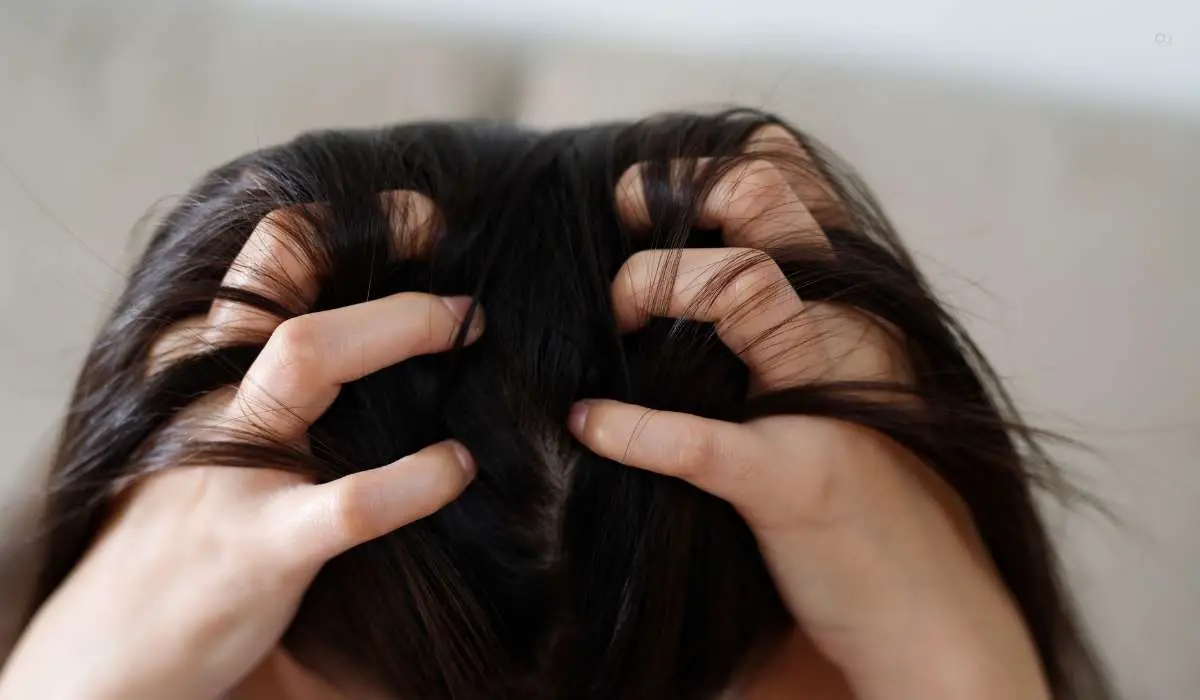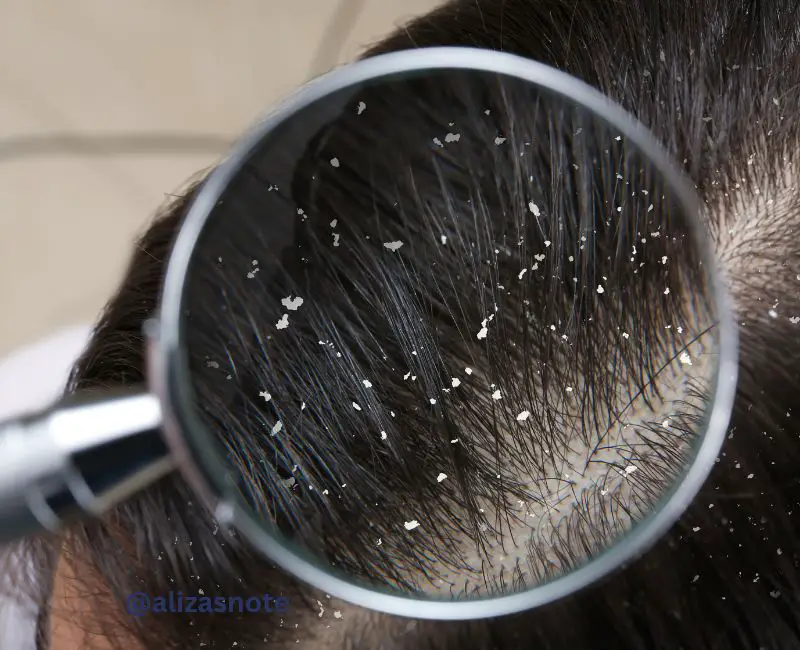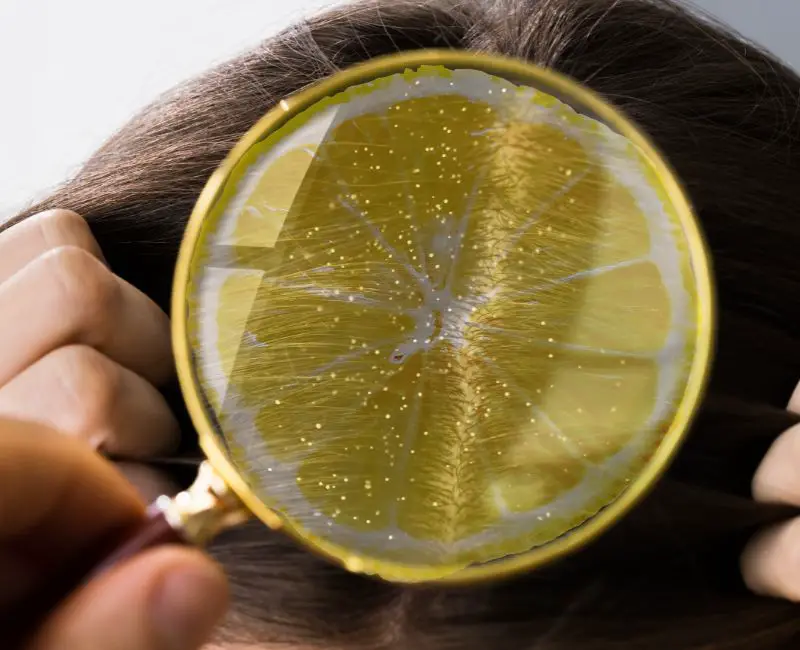10 Things To Avoid Dandruff

Dandruff can be more than just an annoying problem—it can also be difficult to manage if you’re not addressing the underlying causes.
While treatments are important, avoiding certain habits and factors in your daily life is just as crucial for preventing dandruff.
Don’t use harsh hair products to neglecting your scalp’s needs, several common mistakes can contribute to the buildup of flakes and irritation.
Get common things to avoid dandruff to maintain a healthy, flake-free scalp.
With a few simple changes to your routine and habits, you can keep dandruff at bay and enjoy smooth, refreshed hair. Let’s explore the essential things to skip for a dandruff-free scalp!
10 Things To Avoid Dandruff:
Dandruff can be an ongoing battle, but the good news is that many of its triggers are preventable. By avoiding certain habits, products, and environmental factors, you can significantly reduce your chances of dealing with flakes. Here’s what things to avoid dandruff to keep your scalp healthy, balanced, and free from dandruff:
1. Harsh Hair Products
Shampoos and styling products that contain sulfates, parabens, or artificial fragrances can irritate the scalp and strip it of natural oils. This leads to dryness, which can trigger dandruff. Opt for mild, sulfate-free, and moisturizing hair care products to keep your scalp nourished.
2. Washing Hair Too Frequently
Washing your hair every day can cause your scalp to become dry and produce excess oil, both of which contribute to dandruff. Over-washing also strips away natural moisture, leading to an imbalanced scalp. Wash your hair 2-3 times a week for best results.
3. Dry Scalp
A dry scalp is one of the most common causes of dandruff. When your scalp lacks moisture, it can become flaky and irritated. Avoid using harsh products that dry out your scalp and consider adding nourishing treatments, like oils or hydrating shampoos, to your routine.
4. Scratching
Although it may feel relieving, scratching your scalp can worsen dandruff. It can damage the skin and lead to increased irritation or inflammation, making flakiness more noticeable. Instead of scratching, gently massage your scalp or use soothing treatments to alleviate the itch.
5. Stress
Stress can trigger or exacerbate dandruff by disrupting the scalp’s oil production and increasing inflammation. Managing stress through activities like exercise, yoga, or relaxation techniques can help reduce dandruff flare-ups and promote overall scalp health.
6. Improper Rinsing
Leaving shampoo or conditioner residue on your scalp can clog hair follicles and lead to product buildup. This can cause irritation and dandruff. Always rinse your hair thoroughly to ensure no product is left behind.
7. Dirty Hair Tools
Hairbrushes, combs, and other styling tools can accumulate oils, dead skin, and bacteria. If you don’t clean them regularly, these contaminants can be transferred back onto your scalp, worsening dandruff. Clean your hair tools frequently to avoid buildup.
Read Next: How To Remove Dandruff
8. Nutritional Deficiencies
A lack of essential nutrients like zinc, vitamin B, and omega-3 fatty acids can contribute to scalp issues, including dandruff. Make sure your diet is balanced, including foods rich in vitamins and healthy fats, to support a healthy scalp.
9. Cold and Dry Weather
Cold, dry air can dry out your scalp and cause flakes to form. If you live in a colder climate, wear a hat to protect your scalp and use a hydrating scalp treatment to lock in moisture and prevent dryness.
10. Frequent Chemical Treatments
Frequent use of hair dyes, perms, and relaxers can irritate the scalp and strip it of moisture, leading to dandruff. Limit the use of chemical treatments and choose gentler, more natural options when possible to keep your scalp in balance.
Preventing dandruff involves more than just using the right products.
Extra Tips:
Dandruff can be a persistent scalp problem, but there are several steps you can take to avoid it. Here are six additional tips to help you maintain a healthy, flake-free scalp:
Use a gentle shampoo: Harsh shampoos can strip your scalp of natural oils, leading to dryness and dandruff. Choose a mild, sulfate-free shampoo.
Avoid scratching: Scratching can irritate the scalp, worsening dandruff. Try not to scratch and use soothing treatments if your scalp is itchy.
Moisturize your scalp: Dryness can contribute to dandruff, so ensure your scalp is properly moisturized with natural oils or hydrating scalp treatments.
Brush regularly: Brushing your hair stimulates the scalp, promoting healthy oil distribution and preventing flakes.
Stay hydrated: Drink plenty of water to keep your scalp and skin hydrated from within.
Manage stress: Stress can trigger dandruff. Practice relaxation techniques like yoga or meditation to keep stress at bay.
For more tips on preventing dandruff, don’t forget to check out our other blog posts. Also, stay tuned for more updates on our Pinterest!
Last Call:
- Dandruff is a common scalp problem, but with the right care, it can be easily prevented.
- To keep your scalp healthy and free from flakes, use gentle shampoos, avoid scratching, and keep your scalp moisturized.
- Regularly brushing your hair, drinking enough water, and managing stress also play a big role in preventing dandruff.
- Finally, following a simple routine of proper hair care can help you keep dandruff at bay. Choose the right products, nourish your scalp, and reduce stress for the best results.
FAQs:
Q. natural things to remove dandruff
Natural remedies like tea tree oil, aloe vera, apple cider vinegar, and coconut oil can effectively soothe the scalp and reduce dandruff by balancing moisture and fighting off bacteria or fungi.
Q. How does tea tree oil help with dandruff?
Tea tree oil has antifungal properties that can help eliminate the yeast responsible for dandruff. Mix a few drops with a carrier oil and massage it into your scalp for relief.
Q. Is apple cider vinegar useful for dandruff?
Yes, apple cider vinegar can help restore your scalp’s pH balance and prevent yeast buildup. Dilute it with water and use it as a rinse after washing your hair to keep dandruff at bay.
Q. Can aloe vera reduce dandruff?
Aloe vera has natural soothing properties that help calm an itchy scalp and reduce flakes. Apply fresh aloe vera gel to your scalp, leave it on for 20-30 minutes, then rinse it off.
Q. How does coconut oil help fight dandruff?
Coconut oil is a natural moisturizer that hydrates the scalp, preventing dryness that can lead to dandruff. Massage it into your scalp and leave it on for a few hours before washing it out.
Q. Can my diet help reduce dandruff?
Yes, eating a diet rich in vitamins and minerals like zinc, B vitamins, and omega-3 fatty acids can support scalp health and prevent dandruff. Foods like leafy greens, fish, and nuts are great choices.





